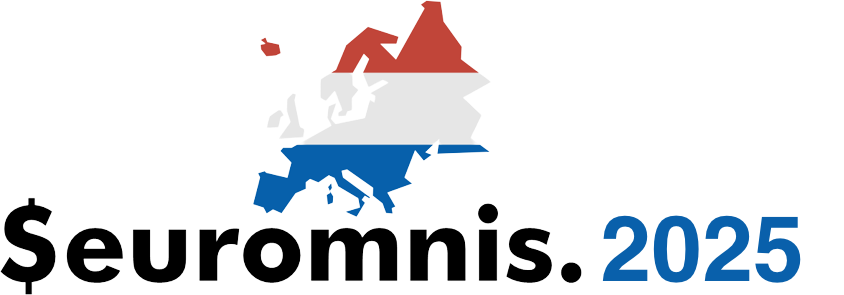Expanding the “Deep Dive in oBrowser HTML Components” session from last year, this talk will connect all the pieces from the backend database (PostgreSQL) and data pipelines all the way up to a real time dashboard. The session will cover the individual details where appropriate.
Netherlands
4 days / 20 talks
Awesome and great speakers
October 5-10

…
David McKoene
David McKeone has been a speaker at EurOmnis conferences for over 15 years. Each year, he has brought some interesting new angle on technology that is always relevant, forward looking, and expands Studio as a versatile tool to build applications and connect technology together.
This years it will be using Apache e-charts to present data inside a small Tailwind application within oBrowser in the form of a completely customizable dashboard.
In the past, Dave has brought the following to Euromnis Conferences
The Postgres Worker prototype that became the foundation for all workers
Listen/Notify for Postgres
Sentry for tracking application bugs post release
The Studio performance analyzer to help identify code bottlenecks
Ways of scaling Omnis web services easily by treating it as multi-process servers
Bootstrap for making pleasing ultra-thin client web solutions
and the notion of GIT integration for Studio
Over the years, some of the above have become a standard feature in Studio.
This years it will be using Apache e-charts to present data inside a small Tailwind application within oBrowser in the form of a completely customizable dashboard.
In the past, Dave has brought the following to Euromnis Conferences
The Postgres Worker prototype that became the foundation for all workers
Listen/Notify for Postgres
Sentry for tracking application bugs post release
The Studio performance analyzer to help identify code bottlenecks
Ways of scaling Omnis web services easily by treating it as multi-process servers
Bootstrap for making pleasing ultra-thin client web solutions
and the notion of GIT integration for Studio
Over the years, some of the above have become a standard feature in Studio.
Easy to Create Real-Time Dashboards to satisfy the Discerning Executive
From PostgreSQL to oBrowser HTML Components, and Studio in between, lets build a production quality dashboard
This talk aims to connect the parts with the whole to give you a working prototype for your own high quality dashboards.
The dashboard will be demonstrated in oBrowser for the specific purpose of showing it in the desktop application. This also means that this can be used to display the same data in a web browser in the same visual manner from Studio server.
The session will use:
- logical replication in PostgreSQL, as a means to provide data and stream it to the component as the data changes
- SQL GROUP BY,
- Omnis Javascript Workers (Node.js) -and-
- a new Omnis Open Source Dashboard HTML Control featuring
- Apache eCharts (with many chart types including geographic based charts) and
- Tailwind panels for design.
All of the above will be provided as part of the session.
About workshops
Format
You’ll sign up for the session you want to attend on a first-come, first-served basis. Up to 6 participants may attend a session, if full, you can sign up for the same topic at a different time. During the session, the speaker will guide the audience through the main topic but you will be able to ask him/her to deviate and cover related areas. Sometimes participants offer new ideas and solutions to a problem.
Check the
Speakers
Pursue any question or area not directly related to the core topic. Every speaker hosts at least 4 sessions which means there are about 11 to 12 simultaneous sessions running all the time with an average of 5 or 6 participants
Check the
Schedule
Flexible conference format means you can choose the best classes for you and at the best time. Some sessions will be repeated, so when you miss one, you can attend the same session later in the day or the week.
